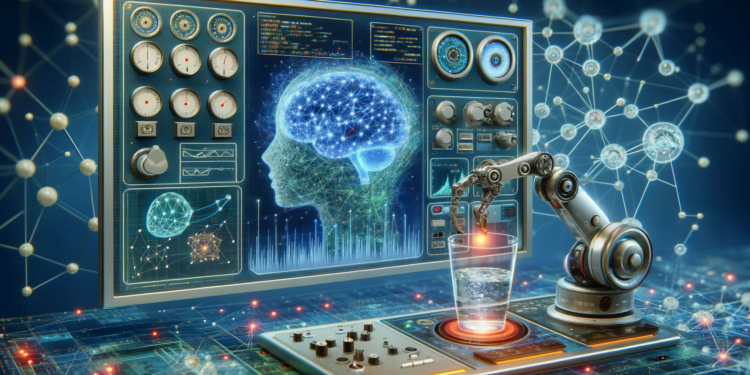Artificial Intelligence (AI) is woven into the fabric of contemporary life, encompassing everything from virtual assistants to recommendation algorithms and autonomous systems. Given its ubiquity, understanding its underlying principles is increasingly vital. In this spectrum, fuzzy logic emerges as a significant paradigm that differs from traditional Boolean logic. Here, we present a rigorous exploration of fuzzy logic and its role in AI.
Foundations of Fuzzy Logic
Fuzzy logic was conceived in 1965 by Lotfi Zadeh, and it is characterized by its ability to model the uncertainty and imprecision inherent in many human decision-making processes. Unlike classical logic, which operates with absolute truths and falsehoods (0 or 1), fuzzy logic allows for intermediate degrees of truth that can be expressed on a continuous range between 0 and 1.
Fuzzy Sets
The core of fuzzy logic are the fuzzy sets. While in traditional sets an element either belongs or does not belong to the set, in fuzzy sets, there is a degree of membership expressed through a membership function. This function, which can take various shapes (triangular, trapezoidal, Gaussian), assigns to each element in the universe of discourse a value between 0 and 1.
Operations with Fuzzy Sets
The basic operations of fuzzy sets—union, intersection, and complement—are generalizations of the operations in classical sets and are fundamental in formulating and solving problems:
- Union (OR): the maximum of the membership degrees is taken.
- Intersection (AND): the minimum is chosen.
- Complement (NOT): calculated as one minus the degree of membership.
Practical Applications
The principles of fuzzy logic have found applications in numerous fields such as:
- Fuzzy controllers: perhaps the most well-known use, where fuzzy logic aids in the control of systems, from home appliances to autonomous vehicles.
- Recommendation systems: by integrating preferences with inherent vagueness, they improve personalization and accuracy.
- Medical diagnosis: to interpret ambiguous data and provide more refined diagnoses.
- Finance: in risk assessment and market analysis, where uncertainty is the norm.
Algorithms and Tools
Fuzzy inference algorithms, such as Mamdani and Sugeno, are crucial in implementing fuzzy logic in AI systems. These algorithms define how fuzzy sets are combined and processed to generate a feasible outcome.
Comparison with Traditional Methods
Compared to classical logic-based systems, fuzzy logic systems can be more robust in the face of incomplete or imprecise information, although they may lack the precision required in critical applications where ambiguity is minimal.
Challenges and Considerations
One of the challenges of fuzzy logic is the determination of optimal membership functions and the configuration of rules, which often require expert knowledge and fine-tuning. Additionally, there is the difficulty of interpreting fuzzy systems by individuals not familiar with the concept.
Innovations and Future Directions
Current innovations in fuzzy logic include its integration with other AI techniques, such as neural networks, leading to neuro-fuzzy systems that combine the ability to model uncertainties with learning and adaptability.
Relevant Case Studies
Case studies, such as the ABS braking system or air traffic control based on fuzzy logic, illustrate how these concepts are used in applications with real-world impact.
Conclusion
Fuzzy logic offers a valuable methodology within the field of AI, providing tools for dealing with problems characterized by vagueness and uncertainty. As AI continues to expand, the understanding and effective use of fuzzy logic will become increasingly relevant for researchers and practitioners in the field.






















